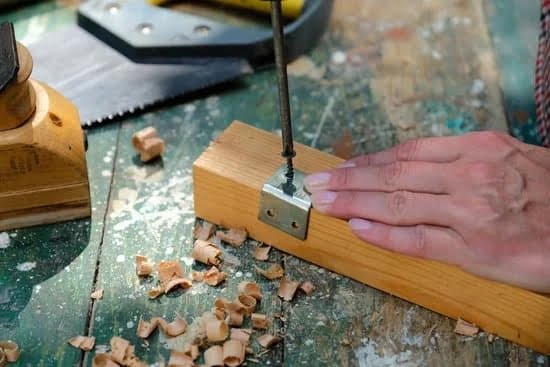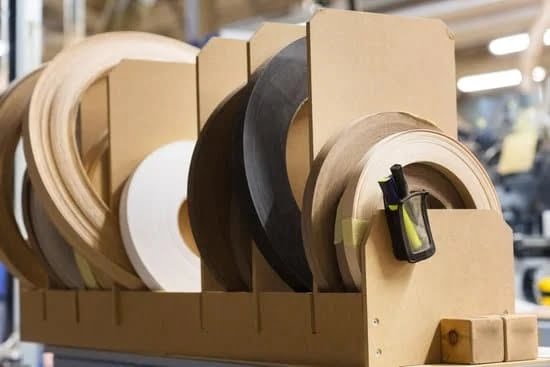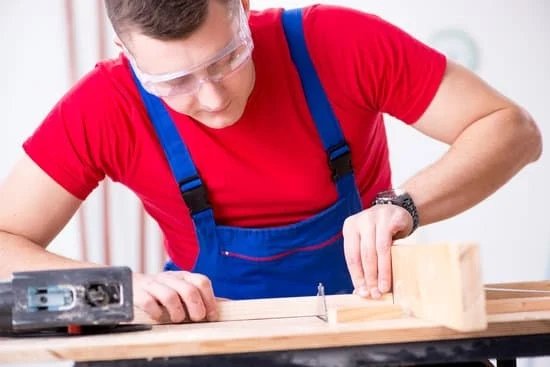Are you looking to take up a new hobby that allows you to unleash your creativity and build something with your own hands? DIY woodworking might be the perfect fit for you. Whether you are a beginner or an experienced woodworker, having the right tools is essential for any project. In this article, we will explore the must-have tools for DIY woodworking and why they are crucial for anyone passionate about crafting with wood.
Woodworking as a hobby offers a sense of satisfaction and accomplishment as you create beautiful and functional pieces from scratch. From simple home decor items to intricate furniture, the possibilities are endless with DIY woodworking. But in order to bring your vision to life, it’s important to have the right tools at your disposal.
In the following sections, we will cover essential hand tools, power tools, safety equipment, specialty tools for advanced projects, measurement and marking tools for precision woodworking, and tips for maintaining and storing your collection. Whether you are a novice looking to start your tool collection or a seasoned woodworker aiming to expand your arsenal, this guide will help you identify the must-have tools for DIY woodworking while also highlighting their importance in achieving successful outcomes.
Essential Hand Tools for DIY Woodworking
When it comes to DIY woodworking, having the right hand tools is essential for creating high-quality projects. Whether you’re a beginner or an experienced woodworker, there are certain must-have tools that will make your woodworking experience much more enjoyable and efficient. From measuring and marking to cutting and shaping, these essential hand tools are the foundation of any woodworking toolkit.
Measuring and Marking Tools
One of the most crucial aspects of woodworking is precise measurement and marking. A tape measure, combination square, and marking gauge are all essential tools for ensuring accurate cuts and joinery. A quality set of measuring and marking tools will help you achieve professional-looking results in your woodworking projects.
Cutting Tools
Hand saws, chisels, and a block plane are indispensable for any woodworking enthusiast. A good quality hand saw will allow you to make clean, straight cuts while chisels can be used for carving, shaping, and fine-tuning joints. A block plane is perfect for smoothing rough surfaces and eliminating imperfections in your wood pieces.
Fastening Tools
Clamps are another must-have tool for DIY woodworking. They come in various sizes and styles, allowing you to securely hold pieces together while gluing or when making complex assemblies. Additionally, a set of screwdrivers is essential for driving screws into place when assembling your woodworking projects.
By investing in these essential hand tools for DIY woodworking, you can ensure that you have everything you need to tackle a wide range of projects with confidence and precision. Whether you’re crafting small decorative items or building furniture from scratch, having the right tools at your disposal will set you up for success in your woodworking endeavors.
Power Tools Every Woodworker Should Have in Their Workshop
When it comes to DIY woodworking, having the right power tools is essential for making your projects easier and more efficient. While hand tools are important for precision and detail work, power tools allow you to tackle larger projects and achieve professional results. Whether you’re a beginner or an experienced woodworker, there are a few power tools that are must-haves for your workshop.
One of the most essential power tools for woodworking is a table saw. It’s versatile and can be used for cutting large pieces of wood with precision. A cordless drill is another must-have tool, as it can be used for drilling pilot holes, driving screws, and even mixing paint or stain. A random orbital sander is also crucial for smoothing out rough surfaces and achieving a professional finish on your projects.
Another important power tool to have in your workshop is a compound miter saw, which allows you to make accurate angled cuts for things like moldings and picture frames. A router is also essential for shaping edges, cutting grooves, and creating intricate designs in your woodworking projects. Finally, a jigsaw is great for cutting curves or irregular shapes in wood with ease.
Investing in high-quality power tools will not only make your DIY woodworking projects easier but will also ensure that they turn out looking professional. And remember, always follow safety guidelines when using power tools to protect yourself from any potential accidents.
In addition to these basic power tools every woodworker should have, there are many other specialized options available to fit any project capability or need. By adding these must-have tools for DIY woodworking to your collection, you’ll be well-equipped to tackle a wide range of projects effectively and with expert results.
Safety Equipment
Woodworking can be a fun and fulfilling hobby, but it also comes with its fair share of risks. That’s why having the right safety equipment is crucial for anyone working with wood. One of the most important must-have tools for DIY woodworking is a good quality dust mask. Wood dust can be harmful when inhaled, so it’s essential to protect your lungs with a mask designed to filter out small particles.
Another essential piece of safety equipment is a pair of safety goggles or glasses. When working with wood, there’s always a risk of flying debris and wood chips getting into your eyes, which could cause serious injury. Investing in a pair of durable safety goggles can help prevent any accidents and protect your vision while woodworking.
In addition to protecting your lungs and eyes, it’s also important to consider hearing protection when working with power tools. Many woodworking power tools can produce high levels of noise that can damage your hearing over time. A good pair of ear defenders or earplugs are essential for anyone working in a noisy workshop environment.
| Must-Have Safety Equipment | Description |
|---|---|
| Dust Mask | Protects the lungs from harmful wood dust particles |
| Safety Goggles | Prevents flying debris and wood chips from causing eye injuries |
| Hearing Protection | Essential for protecting against noise from power tools in the workshop environment |
Specialty Tools for Advanced Woodworking Projects
Wood Router
A wood router is a versatile power tool that every advanced woodworker must have in their collection. This tool is essential for creating intricate designs, shaping edges, and hollowing out areas of wood. With the right router bits, you can easily create detailed patterns and decorative features on your woodworking projects.
Biscuit Joiner
For more advanced woodworking projects, a biscuit joiner is a must-have tool. This tool is used to create strong and seamless joints by cutting matching slots in two pieces of wood and then inserting a biscuit – an oval-shaped piece of compressed wood. This creates a secure connection between the pieces of wood without the need for unsightly screws or nails.
Lathe
If you’re interested in turning wooden spindles, bowls, or other rounded items, a lathe is an indispensable tool for advanced woodworking. By securing the wood to the lathe and using various cutting tools, you can shape and smooth the wood as it spins at high speeds. This allows for precise and smooth curves that are hard to achieve with other tools.
As you progress in your woodworking skills, investing in these specialty tools will open up new possibilities for your projects. Whether you’re looking to add intricate details to your creations or tackle more complex joinery techniques, having these specialty tools in your workshop will take your woodworking to the next level.
Must-Have Measurement and Marking Tools for Precision Woodworking
When it comes to woodworking, precision is key. Having the right measurement and marking tools is essential for ensuring that your DIY woodworking projects turn out exactly as planned. Here are some must-have measurement and marking tools for precision woodworking:
1. Tape Measure: A good quality tape measure is a fundamental tool for woodworking. Whether you’re measuring the length of a board or determining the dimensions of a project, a reliable tape measure is a must-have in any woodworker’s toolkit.
2. Combination Square: A combination square is a versatile tool that can be used for a variety of tasks such as checking for squareness, marking straight lines, and measuring depths. It’s a crucial tool for ensuring accuracy in woodworking projects.
3. Marking Gauge: A marking gauge is used to mark parallel lines along the grain of wood, which is essential for accurate joinery work. It allows woodworkers to make consistent marks on their workpiece, resulting in precise cuts and joints.
4. Chalk Line: For long, straight markings on large pieces of wood, a chalk line is indispensable. This tool helps woodworkers achieve straight and accurate lines over longer distances, making it an essential tool for larger DIY woodworking projects.
5. Calipers: Calipers are used for taking precise measurements, both inside and outside diameters of objects. This tool is crucial for fine woodworking where accuracy and precision are paramount.
6. Angle Gauge: An angle gauge allows woodworkers to accurately measure and set angles when cutting or joining pieces of wood together. This ensures that all components fit together perfectly in any woodworking project.
Having these measurement and marking tools in your workshop will ensure that your DIY woodworking projects are precise and professional-looking every time. Whether you’re building furniture or crafting smaller items, these tools will help you achieve accuracy and excellence in your work.
Tool Maintenance and Storage
Proper maintenance and storage of your woodworking tools are essential for keeping them in top condition and ensuring they last for many years. Here are some tips to help you maintain and store your must-have tools for DIY woodworking:
- Regular Cleaning: After every use, it’s important to clean your tools to remove any sawdust, dirt, or debris that can build up and affect their performance. Use a brush or compressed air to clean the nooks and crannies of your hand tools, and wipe down power tools with a damp cloth.
- Sharpening and Lubrication: Hand tools such as chisels, planes, and saws must be regularly sharpened to maintain their cutting edge. Additionally, apply lubricant to moving parts of your power tools to keep them functioning smoothly.
- Proper Storage: To prevent rust and damage, it’s crucial to store your woodworking tools in a dry environment. Consider investing in tool chests, cabinets, or wall-mounted tool racks to keep your tools organized and protected from moisture and dust.
By following these maintenance and storage tips, you can prolong the lifespan of your essential woodworking tools and ensure that they are always ready for use when you need them.
Remember that caring for your tools is an ongoing process. Regular maintenance will not only extend the life of your equipment but also contribute to the quality of your woodworking projects. Make it a habit to inspect, clean, sharpen, lubricate, and store your must-have tools for DIY woodworking after each use. This way, you can enjoy using them for many more rewarding projects in the future.
Conclusion and Tips for Building Your DIY Woodworking Tool Collection
In conclusion, DIY woodworking is a wonderful and rewarding hobby that allows individuals to create beautiful and functional pieces of furniture and decor. To embark on this journey, it is essential to have the right tools at your disposal. From essential hand tools to power tools, safety equipment, specialty tools for advanced projects, and measurement and marking tools, a well-rounded collection of must-have tools for DIY woodworking is crucial.
Building your DIY woodworking tool collection can be an exciting process as you acquire new tools and skills. It’s important to start with the essentials such as a good set of chisels, a quality hand saw, a reliable cordless drill, and safety goggles. As you become more proficient in woodworking, you can add specialty tools such as a dovetail jig or a router table to tackle more complex projects.
Furthermore, maintaining and storing your tools properly is key to ensuring they remain in top condition for years to come. Regular cleaning, sharpening blades, and proper storage will not only extend the life of your tools but also contribute to safer and more efficient woodworking.
Finally, always invest in high-quality tools that will last a lifetime as they are essential for achieving precision and professional-looking results in your DIY woodworking projects. Whether you’re just starting out or have been woodworking for years, having the right must-have tools for DIY woodworking will make all the difference in the quality of your work.
Frequently Asked Questions
What Tools Do I Need to Start Basic Woodworking?
To start basic woodworking, you’ll need a few essential tools. A good quality claw hammer, a set of screwdrivers with different sizes and types, a tape measure, a set square, and a combination square are all fundamental items to have on hand.
You’ll also need some form of saw – either a handsaw or a power saw depending on your preference and available space.
What Do I Need for a Home Woodworking Shop?
For a home woodworking shop, there are some additional tools that would be beneficial to have. A sturdy workbench is essential, as well as clamps to hold wood securely in place.
A power drill with various bits will also come in handy for creating holes and driving screws. Additionally, investing in some kind of power sander and a router can help expand the range of projects you’re able to take on.
What Tools Do You Need to Build With Wood?
When building with wood, beyond the basic hand tools like hammers and screwdrivers, there are specific tools that become necessary. A circular saw or table saw is often required for making precise cuts in lumber or plywood.
A chisel set is useful for fine woodworking tasks such as carving or fitting joints together. And always having access to an assortment of fasteners such as nails, screws, glue, and clamps is crucial when constructing projects from wood.

Hi everyone! I’m a woodworker and blogger, and this is my woodworking blog. In my blog, I share tips and tricks for woodworkers of all skill levels, as well as project ideas that you can try yourself.





